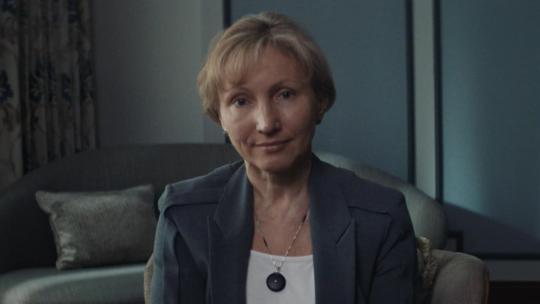#londongrad
Text
Benedict is been on hiatus but his new projects keep piling up! 😁
Not including The war magician, Rio, How to stop time, Rogue male, that seem to be dormant at the moment.
More info about these titles!
ERIC
TWSOHS*
TEWSF
MORNING
THE HOOD
39 STEPS
TBOFC *"
LONDONGRAD ***

(i apologized for any mistake made in this poll, i really tried not to😬)
Reblog and/or tag to reach more Benedict fans! 🤗
Thank you!! 💗
:))
#benedict cumberbatch#ERIC#the wonderful story of sugar henry#the end we start from#morning#the Hood#the 39 steps#the book of clarence#londongrad#polls#my polls#* probably not the final title#** not sure if this is the final title or Pins and Needles#*** i almost didn't include this one but seems is still in development so ...#i can't vote in my own poll but my vote would go to the 39 steps#☺️
110 notes
·
View notes
Note
What happened to Londongrad 🤔
I always forget about this one myself. I’m not sure. I don’t think we ever got information on when that started filming but it’s possible we could see it sometime next year.
2 notes
·
View notes
Text
Is Capitalism Working? Landowners (3)
After the aristocracy and large corporations the third biggest landowners in the UK are oligarchs and city bankers.
A headline in the New Yorker (17/03/22) had this headline:
“How Putin’s Oligarchs Bought London: From banking to boarding schools, the British establishment has long been at their service, discretion guaranteed.”
Many would say that the greed of British banks and financial services knows no bounds but that would be wrong. In February last year the BBC had this headline:
“UK fast-tracks law to tackle Russian 'dirty money' The UK is fast-tracking legislation to target money-laundering by foreign oligarchs. The government's move follows Russia's decision to invade Ukraine. As part of the measures, foreign property owners will have to declare their identities rather than using companies as a façade.” (BBC: 28/02/22)
Until the invasion of Ukraine, Russian oligarchs had been actively (but secretly) encouraged to use British banks and financial services to launder their dirty money.
In 2020, the BBC disclosed that an associate of Putin had used Barlays Bank to “launder millions” of pounds, thereby escaping US sanction imposed on him since 2014. And the Financial Times reported that over the last 20 years London has become one of:
“...the preferred investment locations — if not the favoured destination — for Russian oligarchs, as well a key financial centre for Russian companies, all encouraged by British governments of different political stripes.” (Financial Times: 04/03/22)
Much of these ”investments” went into the London property market.
“Over the past two decades, London’s high-end property market was overrun by the global superrich led by Russian oligarchs who did so many big, brash deals that locals called the city Londongrad.” (Wall Street Journal: 09/03/22)
The laundering of Russian criminal money by the City of London, be it the spoils of cyber crime, illicit arms deals or other mercenary activities, has been known about for years. Russian money entering the property market has pushed up prices. Successive British governments have turned a blind eye to this because they welcomed the increase in foreign money because it helped Britain with its balance of trade deficit.
Apart from the morally corrupt impact this has on our body politic, government complicity in this sordid chapter of our history has a cost for all of us.
When the super-rich oligarchs buy top end properties, the slightly less wealthy:
“…start to look into marginally less expensive districts, where the most successful professionals might be pushed further afield, and so on, until first-time buyers in outer boroughs find their studio flats are a notch more pricey." (Rowan Moore, quoted in The Week: 09/03/22))
This domino effect has helped push up property prices for all of us, and as property prices rise, so do rents.
But it is not only land buying oligarchs who have pushed up the price of British housing and rents.
“A ‘Great Reset’ of the British property market is currently underway, with big banks buying up houses across the country and edging out first-time homebuyers.” (Breitbart: 30/08/21)
It would seem banks are partnering up with housing developers to purchase new homes with the intent of renting them out, a buy-to-let scheme on an industrial scale. Lloyds Bank, for example, bailed out by the British taxpayer in 2009, has plans to become the country’s largest landlord by 2030.
Houses are no longer viewed by banks as places for people to live, but as profitable assets. Banks have at their disposal an almost unlimited supply of money. The entry of the banks into the housing market not only pushes up the price of residential properties to the detriment of all of us but it also has negative consequences for the housing rented sector.
“If this level of investment in residential stock ‘built to rent’ continues, the letting market in the UK will undergo a seismic change – with small independent landlords being squeezed out to the periphery.” (Guardian: 19/08/21)
Once the independent landlords have been squeezed out of the market the banks will hold a monopoly, and be more interested in maximising profits for their shareholders, rather than providing decent affordable homes for their tenants.
#Capitalism#uk politics#property#land ownership#banks#oligarchs#russians#Londongrad#money laundering
1 note
·
View note
Text
Blessed Are the (Un)Happy
View this post on Instagram A post shared by Maria Pevchikh (@maria_pevchikh)
I was at an interview on TV Rain last week. We were supposedly going to discuss the Oscars, but suddenly we touched on what is an important topic, I think — how to behave appropriately during the war and amid everything else that is happening now.
I often read comments about how I smile all the time, but there is a…

View On WordPress
#Alexander Dugin#Alexei Navalny#Anti-Corruption Foundation#corruption#happiness#London School of Economics#Londongrad#Maria Pevchikh#Moscow State University#Roman Abramovich#Russian soft power#Sermon on the Mount#solitary confinement#Yuri Dud
0 notes
Text
Review: Putin's People - How the KGB took back Russia and then took on The West - by Catherine Belton
Review: Putin’s People – How the KGB took back Russia and then took on The West – by Catherine Belton
The author of this, the best study of Vladimir Putin that I have read to date, is Catherine Belton, a Financial Times journalist that was based in Moscow. It is a comprehensive study of the rise of Putin and how he has cemented a Tsar-like power as head of the New Russia. We go from a relatively humble career as a KGB agent in East Germany through to a man who has consolidated vast amounts of…

View On WordPress
#Belton#Boris Berezovsky#Boris Yeltsin#Brexit#Catherine Belton#Conservative#Conservative Party#Conservatives#Donald Trump#Dostoyevsky#espiuonage#Financial Times#FSB#KGB#Kremlin#London#Londongrad#Mikhail Khodorkhovsky#Moscoow#Moscow#oligarch#Organised Crime#Panama Papers#Putin#Roman Abramovich#russia#siloviki#Soviet Union#spy#St Petersburg
1 note
·
View note
Text
The weekly recap has arrived for the week of November 20th, 2022 until November 26th
BEST MOVIES I WATCHED: Red Dragon (2002) and Betroffenheit from Sadler’s Wells (2017)
BEST TV OF THE WEEK: Once Upon a Time in Londongrad (Miniseries), Family Karma, The Real Housewives of Potomac
CURRENTLY READING: Project Hail Mary by Andy Weir and The Only Good Indians by Stephen Graham Jones
LISTENING TO ON REPEAT: Dream Girl Evil by Florence + The Machine
#weekly check in#weekly recap#weekly watch#weekly reading#red dragon#brett ratner#hannibal lecter#betroffenheit#dance#performance art#jeff tudor#crystal pite#jonathan young#once upon a time in londongrad#buzzfeed#docuseries#miniseries#bravo#family karma#rhop#real housewives#real housewives of potomac#project hail mary#andy weir#the only good indians#stephen graham jones#dream girl evil#florence and the machine#florence welch#Spotify
2 notes
·
View notes
Text
The Art Of The TV Title Sequence
The Art Of The TV Title Sequence
(more…)

View On WordPress
0 notes
Text


Londongrad
Ist das der Einfluss der vielen Russen, oder warum findet hier vom dem Bild so eine strenge Erziehung statt? Noch stehen die Museen in der Tradition der Schatzkammer, noch geht nur ein Teil der Besucher davon aus, dass man sich in einem Zeughaus befindet. Aber die Erziehung ist schon so streng.
8 notes
·
View notes
Text
listening to a podcast series called londongrad (yeah lol) and it's this very serious journalist talking about the ~invasion of oligarchs etc but these people sound incredibly silly. I'm aware of the murders and all that but the social climbing manouvres and taste in interior decorating are genuinely very funny to hear about. Journalist in very serious voice: Evgeny had a phallus book in his home. there were erotic paintings over the dinner table. every guest had to dance with him. If you tried not to he'd send another guest to get you from your bedroom. Boris Johnson knocking on your door shouting Evgeny wants to dance!! He wanted to marry Lily Allen. Can't make this shit up, it's so funny. i have never respected uk politicians less. Also farrage apparently arriving at a party in british flag shoes.... guest complaining about how hideous the hotel in post-annexation crimea he was a guest at was like hello? I'm sorry that ruined the holiday for you? Some israeli guy who self describes as a professional social climber sneaking his way into every exclusive london party just because he wanted to see it all.
4 notes
·
View notes
Text

Oxxxymiron — Лондонград (Londongrad OST)
0 notes
Text
https://www.linkedin.com/pulse/boris-johnson-traitor-uk-quid-pro-quo-life-peerage-one-pritchard-ma-v3qze/ https://docs.google.com/document/d/e/2PACX-1vQ-gYu5s3VeGQOS0ZAlOpYfyIJP3XLe5Rqd2hd_nTehx__GprzNPkETyqxH7RxpyzTN6xBZGFK7wSBt/pub ‘Traitor UK’ "quid pro quo" life peerage for Evgeny Lebedev on the one hand is a working arrangement between Vladimir Putin's espionage-driven, overt strategic attack on the democratic institution of the House of Lords, London via "LondonGrad Laundromat," (alleged influence of Russian money in London). On the other hand, it is perceived as a strategy to let the Tories off the hook and advance Boris Johnson's ambition, as it represents a failed leadership in achieving the UK's exit from the European Union. #Perplexity #DeepAI #ChatGPT3point5 Llewelyn Pritchard 26 January 2024
#Perplexity#DeepAI#ChatGPT3point5#climatejustice#uk#canada#corruption#rightsofnature#peopledie#climatecrisis#humanrights#ai#education#QuidProQuo#TraitorUK#BorisJohnson#ForeignSecretary#PM#ToryProtectionRacket#JohnsonsCoverUp#RussiaReport#IntelligenceAdviceIgnored#EvgenyLebedev#AlexanderLebedev#Brexit2016#LondonGradLaundromat#Corruption#CorruptToryGovernment#ToryCorruptionUK#RussianInterference
0 notes
Photo

Once Upon a Time in Londongrad S01E03 Dial T for Traitor
0 notes
Text
Just finished listening to the first episode of #Londongrad! A disturbing series about how our green and pleasant land was infiltrated by Russian oligarchs...
instagram
0 notes
Video
youtube
Londongrad: How Russian Oligarchs Shape British Politics
1 note
·
View note
Text
Leading up to the Russian invasion of Ukraine, the U.K.’s real estate sector had built up an unsavory reputation for being a great place to stash your illicit cash. Government risk assessments repeatedly flagged the sector as being a high risk for financial crime, in part due to improper implementation of due diligence checks by estate agents. Investigations by civil society organizations have revealed that a sizable chunk of high-value British real estate is owned by oligarchs, autocrats, and heads of government from around the world—typically through shell companies set up in tax havens with the explicit purpose of hiding their identity from the public. According to recent research, up to £19 billion may have flowed into U.K. property just to avoid new rules aimed at curbing cross-border tax evasion. Over time, the capital would go on to earn the nickname “Londongrad” thanks to the sheer number of Russian oligarchs that chose to move their money there, few questions asked.
With Russia’s invasion of Ukraine looking imminent, the political winds began to shift. The U.K. government decided to reintroduce landmark legislation making it much harder to own property anonymously. Among other things, the Economic Crime (Transparency and Enforcement) Act (ECA), would eventually require offshore companies that owned U.K. real estate to submit the identity of their beneficial owner(s) (the people who ultimately control the company) to a new Register of Overseas Entities. By forcing them to reveal themselves publicly, the goal was to make it harder for the corrupt and criminal to buy U.K. property anonymously.
It wasn’t immediately clear the ECA would have much of an impact. The main agency tasked with enforcing the Register and more broadly maintaining company registrations, Companies House, has a reputation for having little capacity to ensure that information submitted to it is accurate. As a result, over the past decade, U.K. company registers have become awash with false information, some of it farcical (one director of a company was listed as Adolf Tooth Faith Hitler), some of it malicious. Our own experience evaluating similar policies aimed at stripping away ownership opacity in the U.S. real estate sector have shown little evidence that they deter illicit investment.
In a new research paper for UNU-WIDER, we use public data on real estate purchases to investigate the impact of the ECA. Despite the initial skepticism about its effect, our initial findings suggest that the threat of the Register immediately began to deter investment in UK property from higher-risk jurisdictions. Following the reintroduction of the ECA, new purchases of U.K. property by companies based in tax havens fell substantially relative to companies based in other countries. We know from existing research that people use shell companies in tax havens to hide their identity when purchasing property. The drop in new purchases using companies originating in these countries suggests that the removal of anonymity made the U.K. a less attractive place to buy property.
Figure 1. Purchases of properties through tax havens fell relative to other jurisdictions following the fast-tracking of the Economic Crime Bill and the establishment of the Register

Not all of the credit can go to the Economic Crime Bill, as the invasion of Ukraine also led Russian investors—subject to either sanctions or stigma—to shift their investments away from Western markets. To disentangle these mechanisms, we used data leaks like the Panama and Pandora Papers to identify which tax havens are most popular with groups of people with different risk profiles: Russians, people from highly corrupt countries, and those from countries with an incentive to engage in tax evasion. When we do this, we do find that the initial drop in U.K. real estate investment is likely to be driven by Russians (who are more likely to invest through Cyprus or the Bahamas). But we also find a long-term drop in investment from places popular with the corrupt, suggesting that the threat of the Register has had an impact going beyond the general decrease in Russian investment seen worldwide.
Figure 2. The fall of purchase was partially explained by Russians reducing their investment in UK property, but also the ECA appears to have deterred corrupt individuals more generally

The decrease in inward investment in U.K. property has not been met with a substantial large-scale sell-off. Thus, the whole stock of U.K. real estate owned through tax havens has remained roughly the same since the introduction of the property register—at between £46-80 billion. This may change in the coming months as overseas companies come into full compliance with the register and feel more comfortable making property sales again. But as yet—despite much concern and evidence that offshore investment is driving up U.K. land prices, we did not find that house prices in the parts of England and Wales with a lot of offshore ownership decreased relative to other parts of the country.
Why did the new Register succeed in deterring secretive investment where other attempts have failed? Our best guess is that because the beneficial ownership information filed with the Register would be public, more eyes on the data means that it will be much harder to file false information and not get caught. As more and more companies have begun to comply with the Register, both reporters and civil society organizations have been combing through the submissions to highlight high-risk individuals, inconsistencies, and areas where the filing requirements could be improved. This stands in stark contrast to the database of beneficial owners of companies that have bought U.S. property that FinCEN controls and keeps private, the result being that it is much harder to connect the dots or spot problems with the data.
If public beneficial ownership registers are the way forward for fighting dirty money, it is disheartening to see that many European countries are taking steps in the opposite direction. A recent ruling by the European Court of Justice (CJEU) declared that public beneficial ownership registries presented too strong an infringement on privacy, leading several European countries—including Cyprus—to quickly close public access. Given evidence from our study and others showing that the threat of public registers tends to displace dirty money, this ruling is likely going to make EU real estate markets safe havens for ill-gotten gains in the future.
The story of the U.K.’s fight against dirty money isn’t over. Not all companies have decided to comply with the new Register of Overseas Entities and Parliament is still working to give Companies House the powers and resources it needs to fully ensure the data submitted to it is accurate. But our initial findings are a sign that policies that strip away anonymous ownership can help governments begin to turn the tide after years of being awash with dirty money.
1 note
·
View note